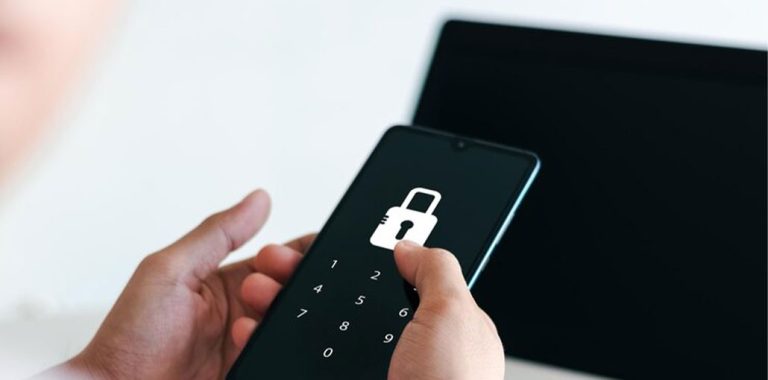Enhancing Patient Trust Through HIPAA-Compliant Communication

Patient trust is the cornerstone of effective healthcare, but it is steadily declining due to rising data breaches, privacy concerns, and the use of unsecured communication channels such as SMS, WhatsApp, and Gmail. When sensitive health information is exchanged without proper safeguards, patients are left vulnerable to identity theft, data misuse, and unauthorized access.
This lack of secure communication has far-reaching consequences: reduced patient engagement, missed appointments, delayed follow-ups, and lower patient satisfaction scores. For healthcare providers, these issues not only harm patient relationships but also impact reimbursement, reputation, and regulatory compliance.
Also Read: Cross Docking: Real Business Impact for Modern Supply Chains
Implementing HIPAA-compliant communication is no longer just a regulatory requirement; it is a strategic advantage. By adopting secure patient messaging and HIPAA secure texting solutions, organizations can restore patient confidence while streamlining care delivery.
Why Patient Trust Matters in Modern Healthcare
Trust determines whether patients will share sensitive information, adhere to care plans, and return for future services. In today’s healthcare environment:
- Trust influences outcomes: Patients who feel confident in their provider’s ability to safeguard data are more likely to communicate openly about symptoms, lifestyle factors, and medication adherence.
- Trust drives engagement: Secure patient communication fosters timely responses, ensuring that patients don’t delay care out of fear their data might be exposed.
- Trust impacts financial performance: Positive patient experiences, tied directly to secure communication, boost satisfaction scores that affect reimbursements and brand reputation.
What HIPAA-Compliant Communication Means
The Health Insurance Portability and Accountability Act (HIPAA) outlines strict safeguards for Protected Health Information (PHI). For communication, HIPAA requires that data be encrypted, access-controlled, and auditable.
In practice, HIPAA-compliant communication includes:
- End-to-end encryption so no unauthorized third party can intercept or read patient messages.
- Role-based access controls to ensure only relevant staff and patients have access to PHI.
- Audit trails and logs that document every interaction for accountability and transparency.
- Secure cloud storage to protect patient data at rest.
- Patient consent protocols that respect privacy rights and preferences.
This goes beyond compliance; it establishes a secure environment where patients feel comfortable sharing personal health information without fear.
By replacing unsecured tools with HIPAA secure texting and secure patient messaging, providers not only avoid fines but also demonstrate commitment to protecting patient privacy.
How HIPAA-Compliant Communication Enhances Patient Trust
1. Builds Privacy Confidence
Patients who know their providers use secure channels are more likely to engage. Whether it’s sharing sensitive lab results or mental health updates, encrypted platforms instill confidence.
2. Reduces Miscommunication and Errors
When messages are centralized in a secure patient communication software, there’s no risk of lost emails or fragmented conversations. Providers get a clear history of interactions, improving care continuity.
3. Increases Patient Satisfaction
According to surveys, patients prefer providers who offer secure digital communication. HIPAA-compliant messaging helps improve patient experience scores and Net Promoter Scores (NPS).
4. Improves Outcomes and Reduces Readmissions
HIPAA secure texting enables quick follow-ups, procedure reminders, and medication adherence checks. This reduces costly hospital readmissions and improves population health.
5. Protects the Provider’s Reputation
In an era where one breach can damage years of trust, secure platforms act as both shields and trust-building tools. Demonstrating proactive compliance differentiates providers from competitors.
The Role of Technology in Scaling HIPAA-Compliant Communication
While compliance is non-negotiable, healthcare also needs solutions that are scalable, patient-friendly, and app-less. Patients don’t want to download new apps for every provider; they expect seamless communication.
This is where modern platforms like QliqSOFT’s Quincy Collaboration Platform make a difference.
Quincy combines HIPAA secure texting, AI chatbots, and app-less communication to empower both patients and providers.
Key Capabilities of Quincy Digital Engagement Platform
- Secure Campaigns: Automated outreach for preventive care, chronic condition management, and follow-ups.
- Virtual Visits: HIPAA-compliant video consults that require no app installation.
- Care Team Chat: Secure collaboration between patients, doctors, and nurses.
- AI Chatbots: 24/7 support for procedure prep, prescription refills, and FAQs.
Best Practices for Implementing HIPAA-Compliant Communication
To maximize trust and compliance, healthcare organizations should follow these steps:
- Audit current tools: Identify any insecure communication channels in use.
- Train staff: Ensure all team members understand HIPAA policies and secure messaging protocols.
- Adopt app-less platforms: Patients resist downloads; offer web or SMS-secure links instead.
- Automate engagement: Utilize HIPAA-compliant chatbots for reminders and educational purposes.
- Integrate with EHRs: Ensure secure communication seamlessly flows into clinical workflows.
- Monitor and report: Utilize analytics and audit logs to ensure compliance and enhance communication efficiency.
Final Thoughts
In an era where healthcare data breaches make headlines on a weekly basis, patients demand more than just clinical expertise; they expect privacy, transparency, and security in every interaction. HIPAA-compliant communication is the foundation of that trust.
With secure patient messaging, HIPAA secure texting, and advanced patient communication platforms like QliqSOFT’s Quincy, organizations can strengthen patient relationships, enhance satisfaction, and improve outcomes while staying fully compliant.
Healthcare providers who invest in HIPAA-compliant patient communication not only protect their patients’ privacy but also gain a competitive edge in today’s trust-driven healthcare landscape.






